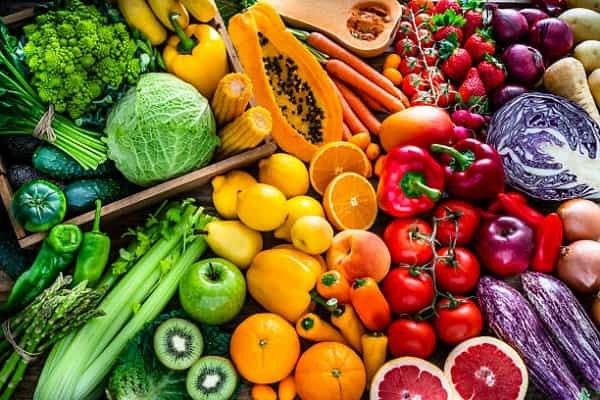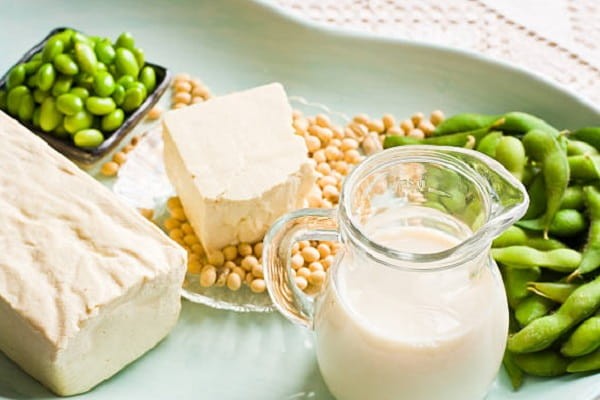Everything You Need to Know About Plant-Based Diets

Let us define plant-based diets
Different types of traditional plant-based diets are: Mediterranean, flexitarian, vegetarian, and vegan.
Mediterranean
Not exclusively plant-based however very high in veggies, fruit, nuts, seeds, legumes, and whole grains. It does include fish, seafood, and seldomly includes (sometimes once per month) some processed and red meat. Foods like poultry, eggs, and dairy are consumed but in smaller amounts and in much fewer quantities compared to a typical western diet, so maybe once per day.
Flexitarian
A typical plant-based diet, but you guessed it is ‘flexible’. Also, known as a semi-vegetarian diet. Where some meat or other animal products are still in the person's diet but less often and in smaller amounts.
Vegetarian
Ok, this is where things get a little more complicated as there are about 6 different subtypes of vegetarian. Let us dive in:
- Fruitarian: Is made up of raw or dried fruits, nuts, seeds, honey, and vegetable oil. For those who haven’t read Steve Job’s biography by the author Walter Isaacson here is a little trivia fact. A preferred diet of Jobs was the fruitarian approach. Thank me next time you win that trivia point.
- Macrobiotic: No animal products, dairy, or eggs. An individual is likely to only include unprocessed, unrefined, ‘natural’ and ‘organic’ cereals, grains, and condiments such as miso and seaweed. Practically speaking - just think of a diet containing plant-based foods in their simplest forms.
- Pescatarian: All meat and poultry are eliminated but fish, seafood, dairy, eggs, and honey remain in the diet.
- Lacto-Ovo vegetarian: All animal flesh is eliminated (meat, poultry, fish, and seafood), however, keep dairy, eggs, and honey in the diet.
- Lacto-vegetarian: Eliminates all animal products except dairy and honey.
- Ovo-vegetarian: Eliminates all animal products except will eat eggs and honey.
Vegan
The hardcore approach of the full plant-based diet - no animal products including honey.

A whole food plant-based diet
This can be considered more restrictive compared to a typical plant-based diet as foods are only consumed in their whole food form. Where processed versions of plant options are not consumed. Anecdotally, some people claim that a strict whole food approach is the be-all and end-all of the perfect idea of a healthy diet.
Lucky them... as there is some good research out from the Journal of the American College of Cardiology to support this notion and not just one zealot's opinion, so I can get around this opinion.
For instance - I can see the benefit of this whole food approach for those who might be at risk of heart disease. With nutritional science and researchers fighting against Instagram nutrition claims, researchers have succeeded in establishing a fact that optimal health can still be achieved while still including processed plant options. So, rest assured my busy bees - don’t fret. Processed options can still be on the agenda - woohoo and thank you!

Plant-based diets can provide all nutrients for good health
Simply speaking optimal health and well-being can be achieved by including a variety of colours in your diet. When you go shopping, if you can see the colours of the rainbow in your trolley, and most of this comes from fruit and veggies then you’re off to a cracking start.
This variety of colours provides us with our micronutrients. These are much smaller molecules, compared to their more staunchly built and designed cousins - the macronutrients (protein, fat, and carbohydrates).
To give you some examples of what type of vitamins and minerals I’m talking about here is a quick summary. Keep in mind this is not an extensive list of the vitamins and minerals found in your plant-based foods nor the functions they serve.
| Type | Function (most vitamins and minerals serve several functions but to keep it simple I’ll just list one) | Where to find plant sources |
|---|---|---|
| Vitamin A | Involved in keeping your immune system firing | Sweet potato, carrots, red pepper |
| Vitamin B Group - B1, B2, B3, B5, B6, B7, B9, B12 | Help the body utilise the macronutrients (protein, carbs, fat) | Wholegrains (less in white/polished versions eg: white bread - therefore aim for wholegrain bread) |
| Vitamin C | Growth and repair of bodily tissues | Citrus fruits eg: oranges, brussel sprouts, black currents |
| Vitamin D | Maintain normal blood levels of calcium and phosphorus | Mushrooms or fortified grain/bean options eg: fortified soy milk |
| Vitamin E | Antioxidant (protects cells from reactive oxygen species - more simply protects cells from damage) | Nuts, seeds, green leafy vegetables |
| Zinc | Wound healing eg: immune system | Legumes, seeds, nuts |
| Iron | Component of red blood cells | Lentils, chickpeas, beans, tofu |
| Magnesium | Cofactor in enzyme systems (eg: protein building, muscle and nerve function) | Spinach, swiss chard, edamame, potato with skin |
| Calcium | Strengthen bones and teeth, muscle function | Soy products, beans, peas, lentils |
| Phosphorus | Strengthen bones and teeth, nerve function | Pumpkin; squash; sunflowers seeds without the shell, tempeh/fermented soy products |
| Sodium | Helps keep water in and out of cells and electrolyte balance | Essentially all whole foods contain next to sodium. Sodium mainly comes from any processing even as simple as putting food into a packet. Found in table salt and processed foods. |
| Potassium | Plays a role in every heartbeat in our bodies | Bananas, oranges, apricots, grapefruit, spinach, peas, mushrooms, potatoes |
| Chloride | Helps keep water in and out of cells and electrolyte balance | Table salt, seaweed, rye, tomatoes, lettuce, celery, olives |
| Sulfur | Helps to metabolise food and involved in fixing DNA | Legumes, nuts and seeds, dried fruit, asparagus, broccoli, brussel sprouts |
It’s important to recognise that a whole food diet approach is generally the most ideal approach to follow to keep your engine ticking along optimally. However, cost, available time in a day to prep and eat food, time spent shopping, shelf-life (perishability), are all factors that can act as barriers to stopping from someone consuming sufficient amounts of nutritionally valuable food.
This is where Bulk Nutrients can help decrease some of this strain with their entire plant-based range. An important consideration with a plant-based diet, an individual generally has to combine different types of foods to have access to complete amino acid profiles for that meal. This just means consuming foods that contain all essential amino acids in one type of food (would be the goal). Complete amino acid profiles are usually achieved by animal products.
However, Bulk Nutrients comes to save the day, again. These Essential Amino Acids (EAAs) contain all the right aminos in the right amounts - with my favourite being the high concentration of Leucine (which is the main amino acid involved in muscle protein synthesis; muscle building). The EAA’s are also vegetarian and vegan friendly.

Amino acid tangent continued
The winner of the most comprehensive plant-based amino acid profile goes to… drum roll… SOY! Soybeans contain all of the 9 essential amino acids. Though these amounts of essential amino acids found in soy-based products may be slightly less than their animal-product counterparts, soy is still a great option to consider as your no.1 preference from a nutritionally valuable perspective.
It’s also important to recognise that some soy-based products naturally lack calcium - so it’s important to also keep an eye out for calcium-fortified products. My recommendation to vegetarians (and its other derivative preferences) and vegans would be to have soy options as your number one go-to for snacks and main meals if possible. This doesn’t mean you have to consume a copious amount, just be mindful.
A great option is the Bulk Nutrients Soy Protein Isolate. I’m being biased here but my favourite is the vanilla flavour. However, being such a versatile protein in the powder form it comes in is that it can be added to other snacks or meals. You can have it on its own as a shake, mix in with pancakes, into a smoothie, or mix in with breakfast cereal. The options are endless.
There’s been some positive evidence over the years looking at the vegetarian approach to diet and its effects across the lifespan. In adults, vegetarian diets have been associated with decreases in blood pressure, hypertension, lower cholesterol, a lower body mass, decreased rates of heart disease, type 2 diabetes, and metabolic syndrome. These results have been compared against those who typically follow a meat diet. Further evidence to support a similar notion is in the younger demographic (specifically in 14–16-year-olds) where a lower body mass index (BMI) has been observed with a decreased waist circumference and lower low-density lipoproteins (LDL; the one you want to try and keep low) in plant-based diets.
There have also been some positive correlations between non-diet-related health outcomes in those who participate in physical activity and those who do not (in the vegetarian and non-vegetarian groups).

Environmental and ethical plant-based considerations
We have covered some of the health reasons above but now let’s discuss a different viewpoint on what some other benefits include. Let us consider the environmental and ethical considerations. There are concerns about how much land is required and cleared to provide for ruminating animals as well as methane production.
However, research out of Australia has found that livestock feed additives such as plant-derived fats, tannins, and plant essential oils can abate methane production. The most effective plant extract to be used in these feed additives has been Eremophila glabra. It’s important to acknowledge the fact that sure... that there are carbon emissions from livestock, but proactive farmers are collaborating with researchers wanting to ensure their carbon footprint is minimised. Many anti-animal consumers value the life of a living breathing animal - which is fine too, and everyone has different values and beliefs.
Technically speaking, I am a nutrition scientist. Scientist being the keyword here, where for the most part I have to act as 'Switzerland'. There is no prejudice or judgment. This is what is important in the world of nutrition nowadays with such activity on social media and the news always bring up people’s opinions etc. Science is science and for someone like myself, I am happy to be impartial and state the facts so all parties can be provided with impartial evidence-based information.
What is great about a plant-based diet is that it is more closely aligned to current recommended guidelines of a variety of foods including fruits, veggies, legumes, whole grains, and to limit saturated fats and sugars. These recommendations are for the Australian population but for those living abroad you will still reap the health benefits of a plant-based diet.
Following a plant-based diet does not mean just cutting out meat or animal-based products, it’s also important to recognise that consuming foods and drinks that meet this eating style requires careful planning to ensure nutritional needs are still met. It can be worthwhile seeking advice from your Nutritionist or Dietitian to ensure you’re meeting all your general living and sporting requirements.

Max Cuneo is a physiotherapist, nutritionist and sports trainer with a passion for health and wellbeing. He has competed in many sports including sailing and bodybuilding, and is working towards his Masters in Public Health.
More about Max CuneoReferences:
- Burke, L. & Deakin, V. 2015. Clinical Sports Nutrition, Australia, McGraw-Hill Education.
- Craig, W. & Mangels, A. 2009. Position of the American Dietetic Association: Vegetarian Diets. J AM DIET ASSOC, 109, 1266-1282.
- Department of Agriculture - Fisheries and Forestry 2012. Research Project Summaries - Climate Change Research Program: Reducing Emissions from Livestock Research Program. Canberra, ACT.
- Department of Agriculture - Water and the Environment. 2019. Livestock methane research [Online]. Canberra, ACT: Australian Government. Available: https://www.agriculture.gov.au/ag-farm-food/climatechange/australias-farming-future/climate-change-and-productivity-research/livestock-methane-research [Accessed].
- Farmer, B., Larson, B., Fulgoni, V., Rainville, A. & Liepa, G. 2011. A Vegetarian Dietary Pattern as a Nutrient-Dense Approach to Weight Management: An Analysis of the National Health and Nutrition Examination Survey 1999-2004. J AM DIET ASSOC, 111, 819-827.
- Fraser, G. E. 2009. Vegetarian diets: What do we know of their effects on common chronic diseases? Am J Clin Nutr, 89, 1607-1612.
- Hristov, A., Oh, J., Lee, C., Meinen, R., Montes, F., Ott, T., Firkins, J., Rotz, A., Dell, C., Adesogan, A., Yang, W., Tricarico, J., Kebreab, E., Waghorn, G., Dijkstra, J. & Oosting, S. 2013. Mitigation of Greenhouse Gas Emissions in Livestock Production: A review of technical options for non-CO2 emissions. Rome, Italy: FAO Animal Production and Health Paper.
- Le, L. T. & Sabaté, J. 2014. Beyond meatless, the health effects of vegan diets: Findings from the Adventist cohorts. NUTRIENTS, 6, 2131-2147.
- Melina, V., Craig, W. & Levin, S. 2016. Position of the Academy of Nutrition and Dietetics: Vegetarian Diets. J ACAD NUTR DIET, 116, 1970-1980.
- Ross, G., Ayse, B., Carol, Z., Trish, G., Robyn, P., Bevan, H. & John, A. 2008. The Relative Impact of a Vegetable-Rich Diet on Key Markers of Health in a Cohort of Australian Adolescents. ASIA PAC J CLIN NUTR, 17, 107-115.
- Satija, A., Bhupathiraju, S., Spiegelman, D., Chiuve, S., Manson, J., Willett, W., Rexrode, K., Rimm, E. & Hu, F. 2017. Healthful and Unhealthful Plant-Based Diets and the Risk of Coronary Heart Disease in U.S. Adults. J AM COLL CARDIOL, 70, 411-422.
- Singer, W., Zhang, B., Mian, R. & Huang, H. 2019. Soybean Amino Acids in Health, Genetics, and Evaluation. Soybean for Human Consumption and Animal Feed. IntechOpen.
















































